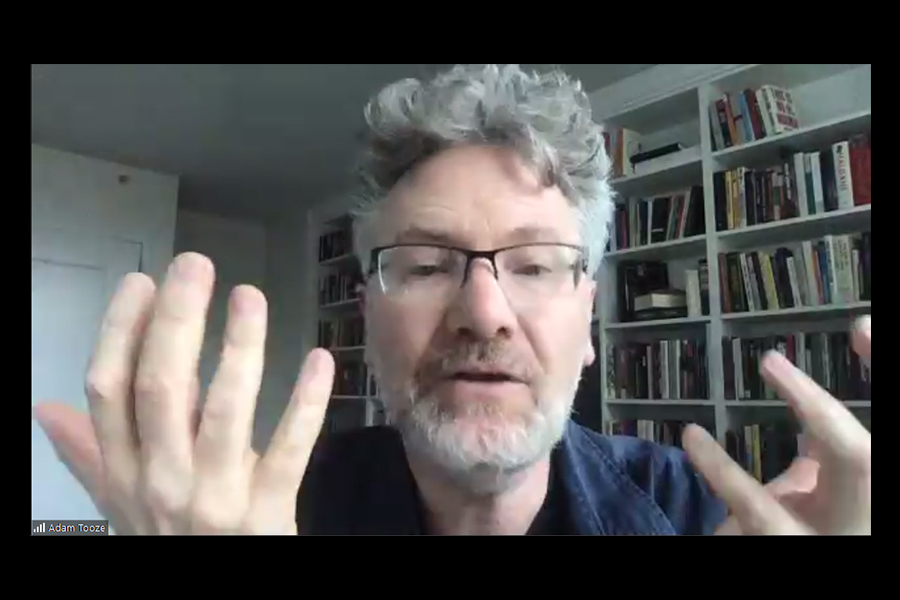Adam Tooze gives Carnegie Squares Lecture

The Kissinger Center hosted Professor Adam Tooze for a seminar on the economic impact of COVID-19 on trade and finance and U.S. foreign policy. This session was part of the Center’s Carnegie Squares speaker series for PhD students from across the country. Professor Tooze centered his remarks on the divergence President Trump’s trade and finance policy took even prior to the COVID-19 pandemic, with trade being linked to national security and cultural issues. Despite substantial concern, a showdown over core stabilization functions within the dollar-based financial system never materialized. Professor Tooze suggests that, ultimately, the story of trade and finance policy under the Trump administration could be interpreted as one of competing factions within the administration that unintentionally balanced each other out.
After Professor Tooze concluded his prepared remarks, Professor Francis J. Gavin opened the floor for questions by asking how to understand Professor Tooze’s story in the context of economic orthodoxy and economic coarsening with China. Students had the opportunity to ask questions ranging from domestic political concerns to international and systemic issues as well as the role of non-state actors in the international financial system. Professor Tooze answered these questions by noting how economic orthodoxy may be turned on its head given the extraordinary action central banks took in the wake of the COVID-19 recession.
Professor Tooze holds the Shelby Cullom Davis chair of History at Columbia University and serves as Director of the European Institute. He received his BA from King’s College Cambridge and his PhD from the London School of Economics.
Professor Tooze holds the Shelby Cullom Davis chair of History at Columbia University and serves as Director of the European Institute. He received his BA from King’s College Cambridge and his PhD from the London School of Economics.
This lecture was part of the ongoing Carnegie Squares Seminar Series for members of the IPSCON program, a project funded by the Carnegie Corporation of NY, that seeks to bridge the policy-academy divide. If you are interested in learning more about IPSCON, visit the IPSCON webpage here.